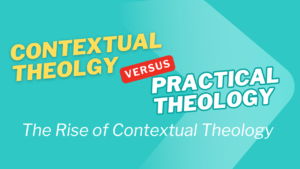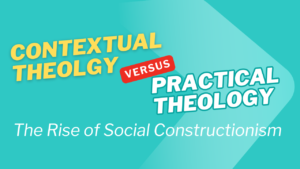This is the third video on contextual theology and practical theory.
The Rise of Contextual Theology: Schreiter, Bevans, and the Shift in Theological Thinking
For centuries, theology was often assumed to be universal and unchanging—a set of timeless doctrines meant to apply to all people in all places. However, as Christianity expanded across cultures and engaged with new historical realities, theologians began to recognize that theology itself is not developed in a vacuum. Instead, it is shaped by human experience, cultural traditions, and social struggles. This realization gave rise to what we now call contextual theology.
In this post, we explore how Robert Schreiter and Stephen Bevans played a key role in shaping the conversation around contextual theology. Schreiter challenged the traditional assumption that theology is simply handed down from above and instead argued that local theologies emerge within specific cultural and social contexts. This perspective was a radical departure from previous missionary strategies that sought to merely adapt European theology to non-Western cultures.
Similarly, Stephen Bevans took this argument further, emphasizing that all theology is contextual—even the doctrines and beliefs that many consider universal. From the theological debates of the early church to the Reformation and today’s modern discussions on gender, justice, and globalization, theological thought has always been shaped by the historical and social conditions of its time.
Key Questions Contextual Theology Raises:
✔ If theology is always shaped by context, is there such a thing as a universal Christian truth?
✔ How do we balance historical theological traditions with the need to engage modern challenges?
✔ Can theology remain rooted in the past while also responding to contemporary issues?
These questions continue to fuel theological discussions today. How do you see theology evolving in response to today’s cultural and social realities? Share your thoughts in the comments below!





